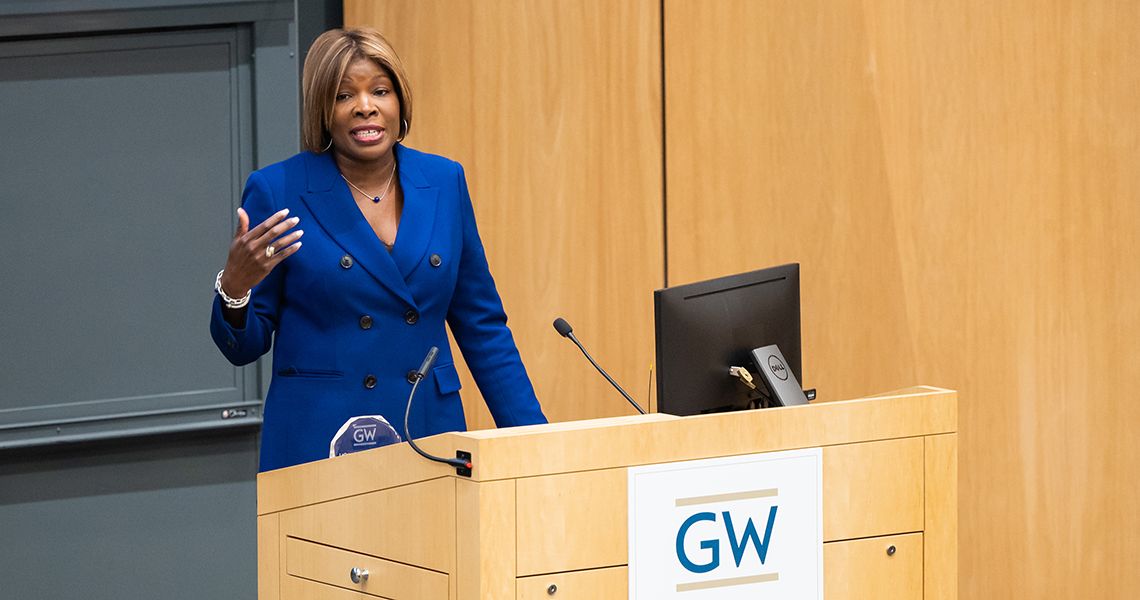LaQuandra Nesbitt, MD, MPH, senior associate dean for population health and health equity, Bicentennial Endowed Professor of Medicine and Health Sciences at the George Washington University (GW) School of Medicine and Health Sciences (SMHS), presented the keynote of the GW Law School’s annual Health Law and Policy Symposium. This year’s event explored the question “Is the Constitution Bad for Your Health?”
The day-long event focused on the downstream impact on health laws stemming from recent court decisions on race-based affirmative action programs in college admissions, Second Amendment issues and the Dobbs v Jackson decision affecting reproduction rights enshrined more than 50 years ago in Roe v Wade. Panelists discussed the use of empirical data to resolve constitutional questions on gun rights, reproductive rights, and affirmative action.
In her remarks, Nesbitt, who also serves as executive director of the Center for Population Health Sciences and Health Equity at GW SMHS, presented “Collaborating for Meaningful Impact: A Time of Great Opportunity.” She discussed the role of health services and population health research, and their potential to improve health care and health systems.
Implementation science using a team-based approach, Nesbitt said, offers GW a great opportunity to have a positive impact of the health of the region. Owing it its status as a research institution, and the university’s overlapping interests in the GW Law School, the Milken Institute School of Public Health, the School of Nursing, and SMHS, she said, GW is position for success in its locally based, community-led partnerships.
A prime example of that community connection, she said, is the Cedar Hill Alliance for Health Equity. The alliance was created to support population health and health services research initiatives around construction of a new hospital east of the Anacostia River — Cedar Hill Regional Medical Center, GW Health — and establish partnerships between the community and local health care providers, to maximize the impact of those services offered in the new facility.
“We know that putting a health care asset in a community does not make the community okay,” Nesbitt explained. “There has to be a lot of planning with community in order to make that happen and improve health.”
Understanding the effect social determinants of health have on health outcomes, Nesbitt said real linkages between health services, the community, and social support services exist to improve health outcomes.
“The point of the Cedar Hill Alliance for Health Equity is to bring together faculty and staff with community members, including health care providers, faith-based organizations, institutions, etc., to really design and optimize the delivery of the health of people in their communities.”



